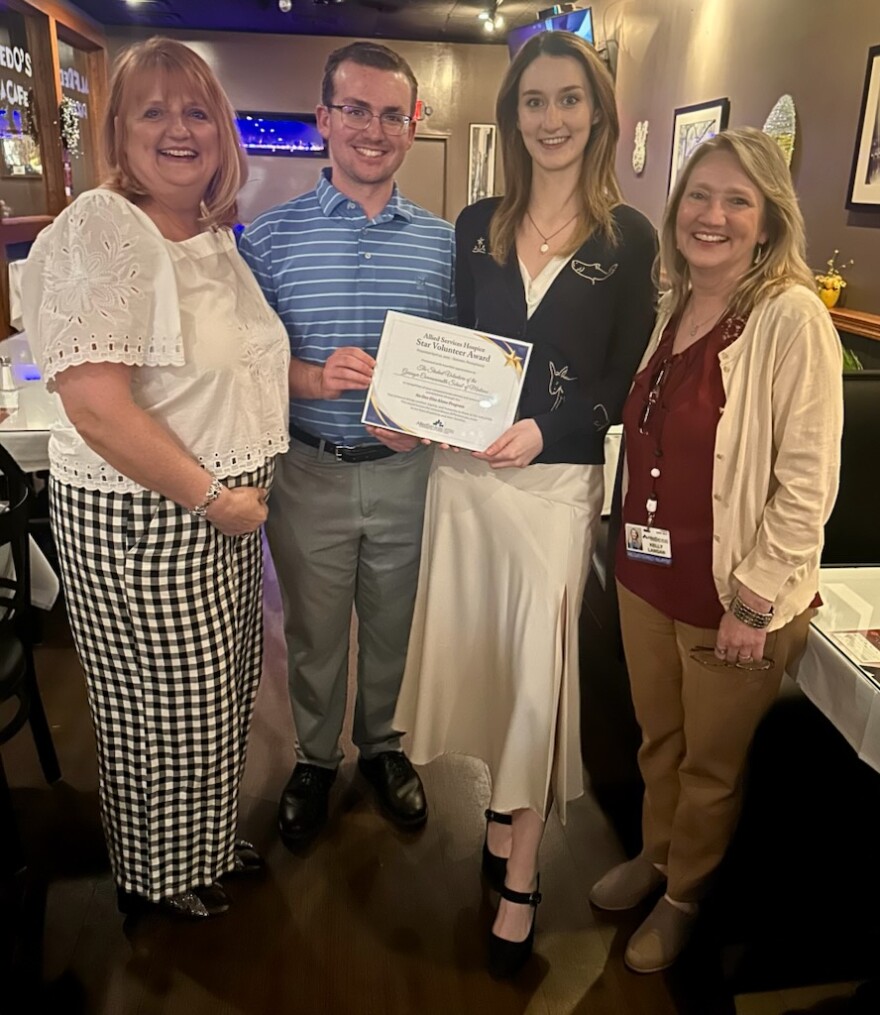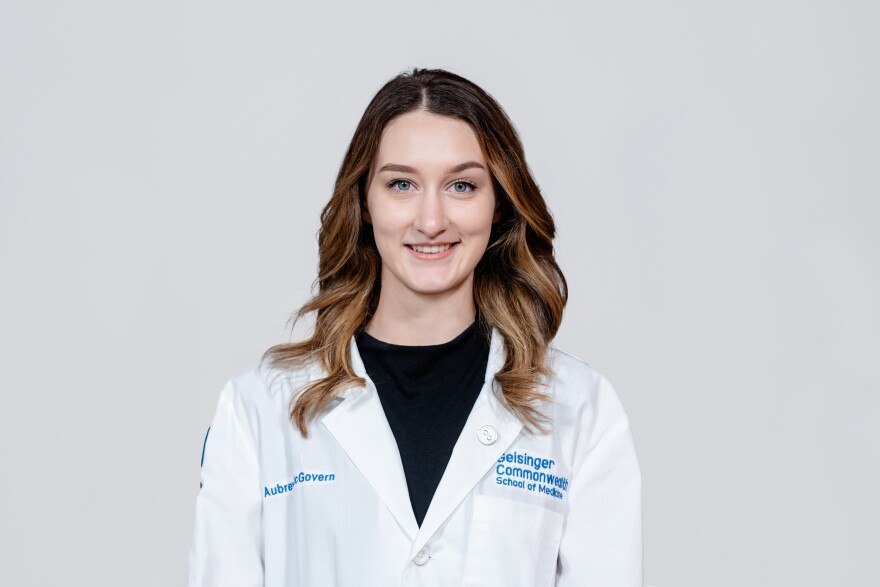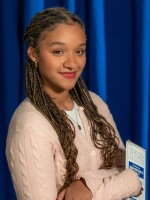Tommy Ahlin was very close with his grandfather.
He looked up to the man he called “Pap-Pap” for his military service, wisdom and family values. He spent the last few months of his life in a nursing home under hospice care, where he died at age 97.
“Unfortunately, on the day he passed, he did pass by himself and was alone for a couple of hours before anyone got to him," Ahlin said.
He later saw an opportunity to help other families facing the same challenge.
Ahlin, a second-year student at Geisinger Commonwealth School of Medicine, or GCSOM, is now a representative for the No One Dies Alone program, which partners the medical school with Allied Services Hospice.
Program volunteers vigil sit, which means to provide company to hospice patients whose loved ones can't be with them.
"I heard about the palliative care interest group and No One Dies Alone program. I attended the first session. I saw that as a really good way for me to give my time back while in medical school, and to be there for families when they do have to step away for dinner and things like that, to potentially be there for their loved ones, just to provide company and or be there towards the end,” Ahlin said.
The program is available at Allied's Mead Street facility in Wilkes-Barre and its Scranton hospice facility.

No One Dies Alone program
No One Dies Alone is a national program through the No One Dies Alone Foundation, founded in 2012, “after seeing so many patients in hospice care essentially dying alone — without family or a support system.”

The program started in 2022 at GCSOM with around four volunteers. Now, each year-long volunteer cohort is typically more than 10 students, according to Allied’s volunteer coordinator Laurie Fleming. Each new cohort is trained in September, and volunteers remain part of the program through the following December.
The program helps Allied fulfill Medicare regulations while also providing a service to patients and their families.
“In hospice, it's a regulation via Medicare that 5% of the hours that we provide care have to be done by volunteers. My last quarter, we had 7.8%. We have a wonderful, dedicated group of individuals,” Fleming said.
Fleming often receives positive feedback about the program.
“A family is very at peace knowing that somebody has sat with them. The staff appreciates that extra support in that room, because this way they can attend to, maybe another patient that maybe doesn't have family members or that needs more care,” she said.
Supplementing medical education
Volunteering with hospice patients adds to Ahlin's medical education.
“That's important for me, before heading to the clinical space, and kind of understanding that medicine is not all sunshine and rainbows and so there aren't always happy endings, but it's important to recognize and it's okay. I think that reflection has kind of helped me mentally prepare as we head into our clinical rotations,” Ahlin said.

Aubrey McGovern, a second year GCSOM student and the No One Dies Alone program president, encourages other students to volunteer.
“This is a field that you can't escape no matter what specialty you're in,” McGovern said. “Palliative and hospice care are so important and so vital to the healthcare system, and it's often an avoided specialty because of how heavy of a topic it is. What I say to students is, even if this isn't on your radar at all, having some experience in working with hospice or palliative care patients is so valuable. If you ever have a patient come across your specialty, who might be struggling with themselves or a family member or a loved one towards the end of their life or a chronic illness that's debilitating requires palliative care, they will have that experience and background on how to navigate those conversations in the future.”
She’s been able to understand death and dying more since becoming a volunteer, something she sees as invaluable as she starts her career in medicine.
“It's been really transformative over the past year, just deepening my understanding of the field and how to interact with patients,” McGovern said.
Even with the busy schedule of a medical student, Ahlin sees the volunteer program as a worthwhile use of time.
“There are plenty of hours during the week, where I'm watching a meaningless football game, scrolling on Instagram for a half hour here or there. I should easily have the time to give back for a couple hours a week when called upon to do so,” he said.
Volunteers typically vigil sit once every two weeks.
McGovern said being in medical school shows her the importance of proper time management, which the volunteer program has reinforced.
“Medical school makes you realize what time you really do have to put towards more productive or meaningful things, like every day you're like, Okay, I really do have 20 minutes to do this thing, or I really do have an hour. It's just really down to scheduling and planning,” she said.
Gaining perspective from hospice patients
McGovern said volunteers are restricted from watching videos or wearing headphones when vigil sitting, even if the patient they are with is unresponsive. At the most, volunteers will review lecture notes and flashcards to pass time. She makes an effort to connect with patients, even if they are unable to speak back.

“I'll be talking to unconscious patients too, just because I'm a full believer that even if a patient is unconscious, they're aware of what's going on in the room. They know you're there. They can sense that you're there. So I'll be talking to them like, 'Oh, it's snowing today. Oh, you have a nice view,'” McGovern said.
Ahlin even connected with a patient while volunteering.
“There's one patient who was watching the Little League World series. We went from talking about Little League World Series to his love of the Phillies to his time in the service, and connecting his experiences with my grandfather's experiences," he said.
"A lot of patients who know that the end is near are very reflective. I think it's very therapeutic for the patients, as well as myself, just to be there," Ahlin said. "That was one of my most memorable and cherished experiences I've had, getting to know that one patient and providing a different face to talk to."
McGovern became emotional when a conversation with a patient made her realize medicine was the right path for her.
“We had gotten pretty close over like, the two hours that I was there, and had talked about pretty much everything in his life. What he had done for work, and his grandchildren, his kids," she recalled. "At one point he had fallen asleep, and I started just doing flashcards. He randomly woke up and looked right at me and asked, ‘Are you following your dreams?’ That really struck me, really to my heart, because we were talking about life and med school, and I said, ‘I hope so.'"
"Being able to partake in those conversations, it just makes me aware of how lucky I am to be able to pursue a career in this field, and honestly keeps me grounded," McGovern said.





